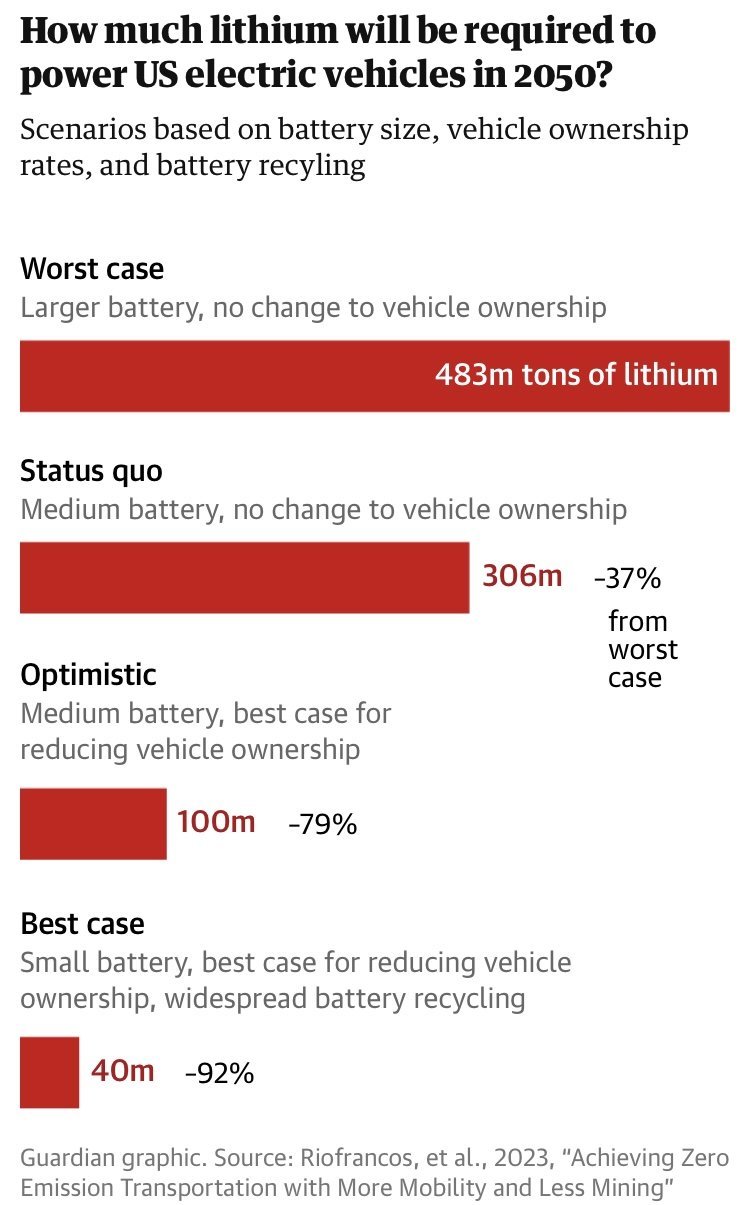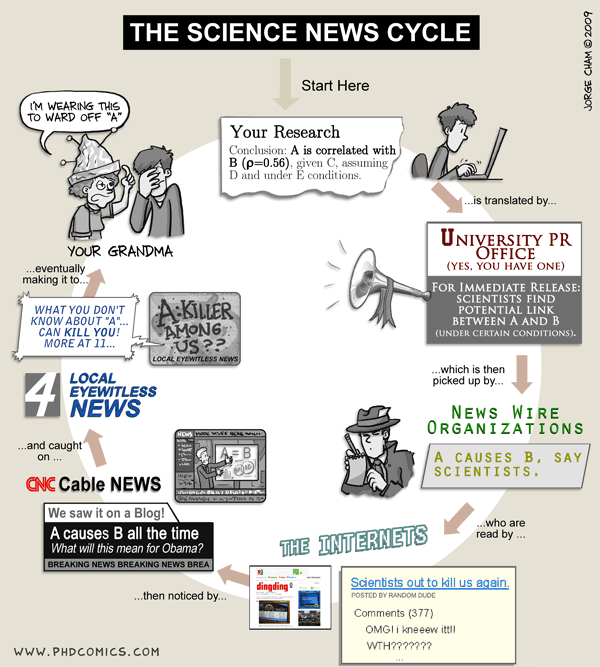At least your press releases are repeated verbatim in English, the same language they were written in. In other countries they are badly translated before being thrown at the readers. The results can be dadaistic. I remember during the BSE crisis that “bull semen” was translated into Spanish in the El País as “semen de buey” by their London correspondent Lola Galán (yes, I believe in naming and shaming, even 25 years later). That means “ox semen”. The article itself is not longer available but the outcry it caused was reflected in an apology that is now paywalled.
Meaning, oxes are castrated so incapable of producing semen, right? To be honest, I think I may have missed that one myself if it weren’t pointed out to me, as the names and the state of an animal’s intactness is not immediately obvious to me (and I’m guessing most people, at least in urban areas, in the US couldn’t tell you what the difference between an “ox” and a “bull” is. I’m pretty sure for the longest time I thought it was a different animal.)
Really? ![]()
Absolutely. I had to think about it when you pointed it out. We don’t really talk much about “ox” here except for “oxtail”, and that doesn’t even have to (or usually) come from an actual ox.
I assume it went the criminals behind this scheme. Are you expecting a more illuminating answer?
But, I generally agree that there is a lot of lazy and incompetent journalism out there these days.
The ‘tech press’ is particularly bad - especially the ‘green’ tech press which combines advocacy for green solutions with lack of scientific knowledge. This makes the entire industry ripe for scams like thr ‘Waterseer’, which violated basic science but got glowing writeups in the ‘green’ press, leading to millions of dollars in funding that could have gone to development projects that actually work. The ‘Playpump’ was another obviously stupid idea that lived way longer than it should have becausemof hype-tastic, science-free ‘science’ reporting. Add in flying cars, Hyperloop, magic power sources, solar roadways, electric airplanes that don’t exist anywhere except as artist’s renderings, fusion hype, and other credulous glurge, and these sources do serious harm not just to the reputation of the press, but to the poor people who get saddled with goofball ‘solutions’ that don’t work but managed to extract millions in development funds from taxpayers and NGOs. And of course they hurt efforts to mitigate climate change by sowing distrust in reporting and diverting investment capital to nonsense.
A lot of Washington Post articles are freely available on MSN, such as:
But we have a very relevant discussion going on–and probably the answer is yes:
A good friend of mine just took early retirement from his editing job at the NYT. He says the business has just gone to shit in recent years. I would add the network news half-hour on all three “big” networks as being a waste of time. If you get two minutes on a story, it’s gotta be a whopper. Otherwise it’s a minute of partial sensational sentences. More time is dedicated to the weather than the news these days: “Bomb cyclone is coming! 18 million people in harm’s way!” And then Miguel Almaguer appears, standing chest deep in flood water. The only news worth watching is PBS.
ANY news article which main focus is “reporting on outrage on Twitter” should have it’s “writer” barred from ever using a computer as part of their job. It’s as you said the laziest most basic news reporting and legitimately doesn’t mean anything 99% of the time. Why is CNN reporting that the “alt right” is “protesting” the new Black Panther movie and their proof is literally a guy with 30 followers posting a message with 4 retweets to “Boycott Black Panther”? For some reason news articles LOVE using nobodies on Twitter and claiming they’re the majority.
When I delivered the Arkansas Democrat, the sun was measured to be cooler by a few degrees. The paper’s headline, in a font larger than it had used for Pearl Harbor, was, “SUN COOLING OFF!”
It frightened my Grandmother.
Allow me to pile on and agree with everything everyone has said thus far.
That’s true, in the sense that his expertise in physics seems to be theoretical.
I mostly give people a pass when it comes to the way out-there stuff. If you want to say that someday we’ll be cruising around in negative-matter-powered FTL drives, whatever, no skin off my back. But “Earth’s core has stopped spinning” actually has real-world relevance, or would if it were true, and deserves more accurate reporting.
This goes both ways. It is certainly not entirely in the direction of breathless reporting in favor of green solutions. This article showed up in The Guardian the other day:
Despite being a left-leaning news source, it reads much like right-wing propaganda. Although they fixed it later, the first version of the article included this graph:

The numbers were off by a factor of a thousand. We don’t need 306 million tons of lithium, we need 306 thousand tons (according to the study). A bit of a difference, eh.
Never mind that the title itself is purest clickbait. Electric cars do not threaten environmental havoc. All of the issues pale in comparison to carbon emissions.
Reading in more detail, it’s clear that the motivation for the article is to promote an anti-car agenda, which of course is not so popular among the political right, but the net effect is the same (just as fighting solar/wind/nuclear gives more power to oil companies, regardless of motivation).
My late mother was a journalist in the 60s and 70s. A real, write-every-day for the local newspaper journalist. A go-to-every-city-council-and-school-board-meeting journalist. A write-a-Sunday-feature-every-week journalist. A journalism-major-with-English-minor journalist. Heck, she was still a daily proofreader for the local paper at the age of 87.
Her level of disgust at the declining quality of journalism was something I had to hear about at every visit.
She could overlook typos, nonsensical statements, unwarranted credulousness, and gross misspellings, but what she could NOT tolerate was poor structure. An actual story (not a human-interest feature) starts with the important information in the first graph. The essentials should be in the first sentence. EVERYTHING from that point on needed to be in descending order of importance so it could be easily cut by the editor(s). Nobody would rewrite a story so it fits the space available in the next edition. They would just start deleting the last paragraphs until it fit. Sometimes it would literally be cut until all that was left was the first sentence or two…and they better make sense.
Very rarely see this anymore. I often give up reading an article when they haven’t gone anywhere at all in the first dozen graphs. It’s all just build-up and snarky comments to that point. Folks, it’s not a romance novel or a murder mystery. It’s supposed to be a news article.
Yes, the inverted pyramid structure. We were still taught that (more like drilled that) at the Basic Writing and News Writing classes I took in the mid-90s. (Actually, we were taught about it in eighth grade first, if I remember right.) I would guess that it’s still being taught, and I still see plenty of it in traditional news media for non-feature stories. I just feel there’s a lot more non-straight news stories we see these days, especially with online publications. It does bug the shit out of me when I’m reading something that should be a news story and I can’t find the meat until like the sixth graf. I know this happened just in the last week. It’s like those fucking recipe websites with a whole goddamned narrative before the recipe. I mean, I like the story, just put the recipe on top, then get into your musings. I’m guessing they don’t so I have to scroll past more ads.
Pages can get ranked not just by clicks, but by how long you stay on a page before abandoning it. And as you say, the more you have to scroll the more ads you get to see.
Also, an inverted pyramid structure makes it hard to bury politically inconvenient details down in paragraph 12.
Also, there is so much demand for ‘content’ that often ‘journalism’ contains almost no new facts. It’s all about the filler.
These types of goals have supplanted good journalism and good writing.
Today, the Washington Post is one of the best newspapers in the US.
Which is not to contradict the OP. If even the best is this bad, nowadays, we’re doomed.
I’ll just leave these here.
“Everything you read in the newspapers is absolutely true—except for the rare story of which you happen to have firsthand knowledge.”
—Knoll’s Law of Media Accuracy (Erwin Knoll, editor, “The Progressive”)
“Early in life I have noticed that no event is ever correctly reported in a newspaper…”
—George Orwell, “Looking Back on the Spanish War” (1943)
I just saw an NPR story where the cover image had an old WW1 British tank and the title was “American and Germans to send Main Battle Tanks to Ukraine”.
I understand the images in articles are usually added by someone else usually an editor, but whoever was editing the article should have realized an article about the modern day Ukraine War shouldn’t have an old black and white photo attached.
